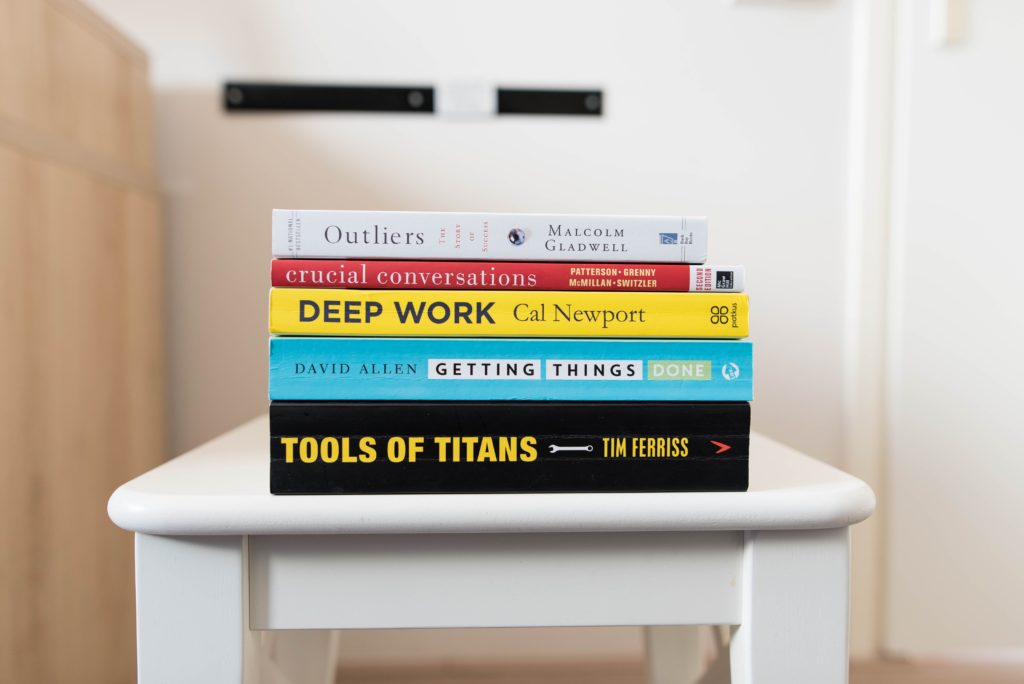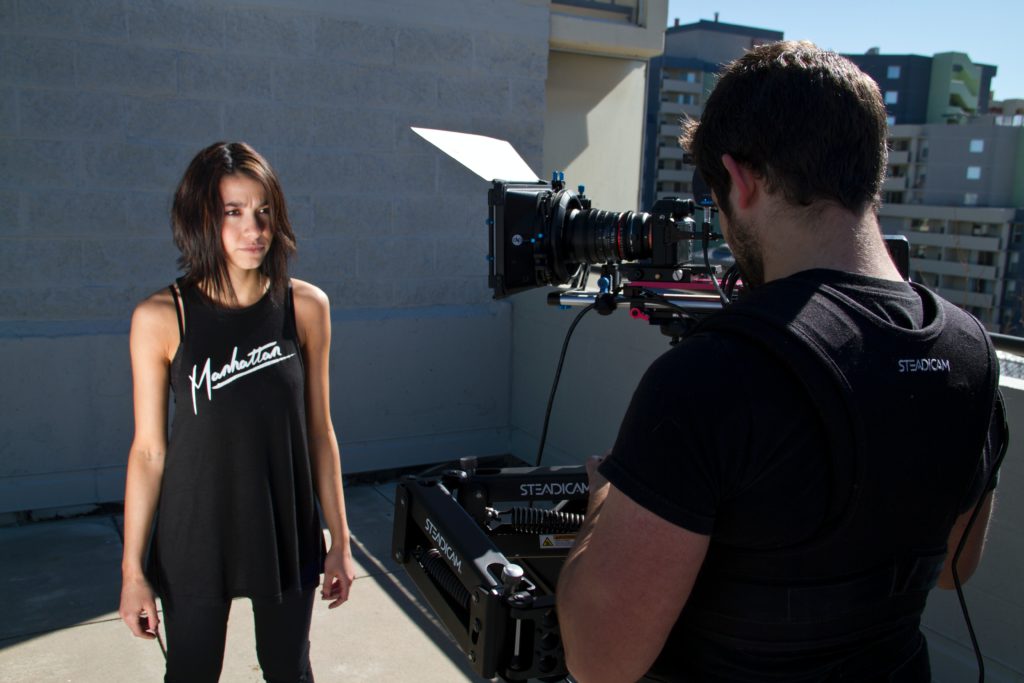
Have you felt distracted a lot lately? Who could blame you? There is SO much going on in the world right now—from crazy current events in the world to the influx of new art and media finally coming out post-lockdown to our ever-beeping devices. It’s easy to lose focus, which is why I am pumped to introduce you to the concept of deep work.
If you’ve never heard of it before, deep work is a state of distraction-free concentration, first coined by Cal Newport in his book Deep Work. If you want to generate high-quality results, it’s essential to eliminate all distractions. (Yep, that means no phone, friends, or Friends on TV in the background and/or, for some people, no music.)
Before you lament how boring that sounds, hear me out! Not only can deep work help you finally get tough tasks off your plate, but for actors, it may even help you perform better, with increased confidence and joy.
Who doesn’t want to feel more in the flow? Um, yes, please!

How Deep Work Can Help Actors
Let’s face it, for actors, there isn’t always a lot of lead time to prepare for an audition or self-tape. Or we may get new pages to learn just a few hours before walking on set.
And we all lead busy lives outside of work too (or we should be! Learn why here.), which we cannot just stop and walk away from to memorize three pages of dialogue.
Wouldn’t it be nice to develop the ability to hone in on what you need to do, feel fulfilled when you finish, and then have time to spend enjoying the rest of your day?
The idea behind deep work is to be more intentional with your time, by laser-focusing on the tasks that push you closer to achieving your goals (and not the ones that burn through your day, like social media, toxic relationships and unhealthy habits).
Lots of innovators and artists set aside time without distractions to accomplish big projects, such as Michelle Obama and Apple C.E.O. Tim Cook. And research suggests that going deeper can actually reduce fatigue and improve your overall satisfaction in life because you’re making progress toward your goals.
Actor and author Timo Niermann shared how practicing deep work helped him drown out all the typical noise backstage during theater performances and respect his fellow artists’ space for focus work as well.
He shared, “Every person at every department has their own working rhythm – the way we like to execute our tasks: How to build a prop, mix the sound, warm-up, or prep a costume… And while we are all busy bees droning around backstage, we tend to constantly interrupt each other in these workflows.”
When we pay attention to other people’s rhythms and remember to let them finish their deep work cycle, not only are we helping to create a better quality play, show, film, etc., but we’re setting the tone for a more supportive work environment.

Here are a few quick tips to try deep work on your own.
1. Develop a deep work routine.
Willpower is a limited commodity, and deep work will push your cognitive abilities further than regular tasks. So you want the most conducive environment for concentration.
But as actors, sometimes we can’t always prepare for an audition at the same time and place each time. So instead, create consistency around how you prepare.
For example, maybe you pour a cup of your favorite beverage and get comfy on the coach before you start working. Set up a timer for your work session that’s not on your cell phone and put the phone in a drawer, out of sight.
Now if you’re on the road when you get the call about your next audition, you do the same thing before you start to prepare—get a nice beverage, find a comfy spot, set your timer and hide your phone.
2. Decide in advance what you’ll work on.
Deep work is no place for multi-tasking, so prioritize your most important task first. Resist switching to another task until you’ve completed the first; that’s the point of this exercise.

3. Build in breaks.
Yes, you read that right—not only are breaks essential to focused work, Newport encourages them: “Instead of scheduling the occasional break from distraction so you can focus, you should instead schedule the occasional break from focus to give in to distraction.” Woohoo!
The best way to do this is to schedule your breaks in advance and stick to your schedule. Let’s say you’re trying to finish a script. Every hour, give yourself a ten minute break to get up, use the bathroom, or have a snack. But when those ten minutes are done, it’s back to work.
This method helps you indulge in temptation without it running your life, but you’re also (rather smartly) concentrating your energy on the important stuff you need to get done.
If you spend a lot of time scrolling instead of meaningful work or rest, designate a time frame to browse IG Reels to your heart’s content, but only during those periods.
Try an online deep work group.
If you need extra guidance, there are online deep work groups available.
Caveday believes that by improving the quality of our work, we can improve the quality of our lives. The company offers group Zoom sessions in 1 hour or 3 hour increments called sprints. People all over the world hop online, set their intentions for the deep work session, participate in a quick check-in with other “Cavedwellers” and then work silently under the facilitation of a Caveday host.
You can use the time for whatever type of task you need to focus on, distraction free. Some people use the time to write, complete work projects, make personal admin calls, or even clean their homes.
The goal is to strengthen the skill of using your time wisely, and the online meeting is a great way to get extra accountability in an increasingly isolated world.
You can test out Caveday’s deep work sprints next week. They are hosting a free session for the public you can register for here.

Are you already familiar with deep work? Have you used it to prepare as an actor before? Let me know in the comments below!
LOVE + brain food!

+ show Comments
- Hide Comments
add a comment